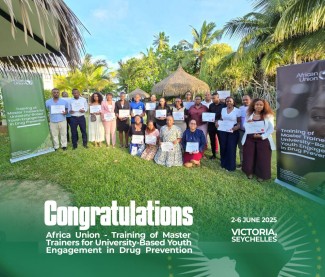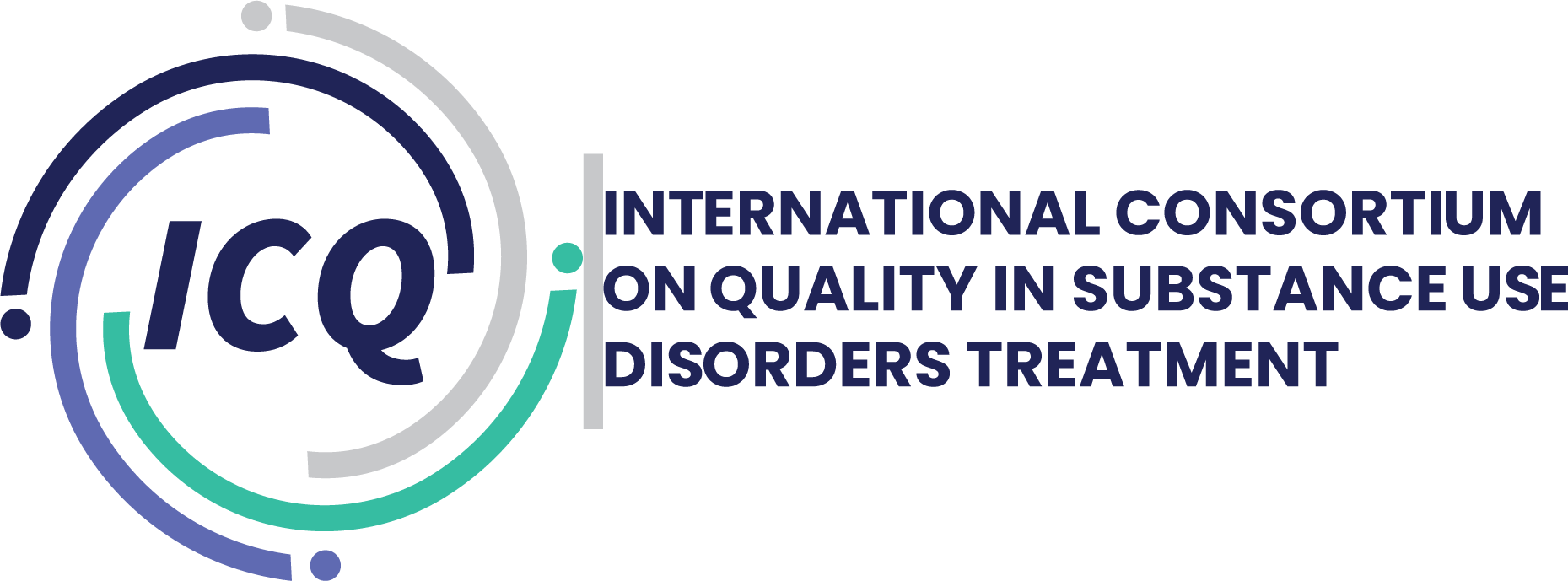Empowered Youth Transform Drug Prevention Across Africa

What happens when 25 passionate young people gather in one space with one mission to reimagine drug use prevention for Africa?
Seychelles was that space, and from 2nd to 6th June 2025, it became a cradle of ideas, urgency, and unity. The Engaging Youth in Drug Use Prevention training, convened by the African Union Commission (AUC), was not just another capacity-building event. It was a continental declaration that Africa believes in its youth, trusts its data, and is ready to lead its response.
The African continent is navigating a delicate transition in demographic, economic, and social aspects. With over 60% of the population under 25, Africa has energy and innovation on its side. But it also faces complex vulnerabilities: porous borders, urban pressures, underfunded prevention and treatment systems, and inadequate harm reduction services. The World Drug Report 2023 pointed to a 23% rise in global drug use in just ten years, with 296 million people. Africa, without timely and targeted intervention, stands to bear the heaviest future burden.
This is why the African Union’s leadership cannot be overstated. Through its Plan of Action on Drug Control and Crime Prevention (2019–2025), the AU has embedded prevention, data, and partnerships at the heart of its strategy. And in Seychelles, that vision came alive.
The training of master trainers focused on universities as epicentres of drug use prevention innovation. The 25 participants from diverse AU Member States were equipped not just to deliver evidence-informed programs, but to mentor, scale, and institutionalize youth-centred interventions in higher learning institutions. These are not passive programs; they are peer-led, culturally resonant, and deeply grounded in lived realities.
But the AU did not stop at youth. It also convened traditional leaders who are respected custodians of culture and moral authority. In many rural and underserved communities, these leaders are the first responders, healers, and protectors of the social fabric. Their inclusion is not symbolic, but it is strategic. Together, they began crafting national workplans aligned with the Continental Action Plan, demonstrating how modern prevention efforts can thrive when rooted in ancestral wisdom.
The gathering also marked a critical milestone: the operationalization of the Pan-African Epidemiology Network on Drug Use (PAENDU). PAENDU is the AUC’s flagship response to a long-standing gap. It aims to harmonize data, build early warning systems, support national drug observatories, and guide Member States in responding with evidence, not guesswork. And just as the AU looked forward, it also looked back, with a continental review of the Plan of Action’s implementation. What’s working? What’s missing? Where do Member States stand? This participatory evaluation laid the foundation for a post-2025 roadmap, one that will be smarter, more inclusive, and unapologetically African in its design.
What made this workshop so unique was not just the policy depth, but the people. The passion of the youth, the wisdom of the elders, the precision of data scientists, the voice of civil society, and the steadfast stewardship of the African Union came together in one powerful mosaic.
In her address, Ms. Angela Martins, AUC’s Acting Director for Social Development, Culture and Sport, captured the spirit of the moment: “Youth are not just vulnerable, they are powerful agents of change.” And in Seychelles, that change began to take form not in theory, but in strategy and structure.
To sustain this momentum, participants recommended action steps to scale youth engagement across Member States:
- Each participating country will conduct training targeting institutions of higher learning student leaders, and lecturers using the adapted curriculum.
- Establish or strengthen peer educator networks with regular reporting to national focal points and the AUC.
- Lobby tertiary institutions to integrate drug use prevention into existing health and wellness programs with support from national health or education ministries.
- Develop digital toolkits and content repositories to support standardized, youth-friendly campaign materials across Member States.
To ensure the outcomes of the Seychelles training translate into meaningful action, Member States must adopt a structured approach to implementation. This includes embedding youth-led prevention models within institutional systems, allocating national resources to scale interventions, and establishing clear accountability frameworks at both national and regional levels. The African Union Commission should support this process through continuous technical guidance, standardized reporting tools, and policy dialogue that keeps youth engagement high on the continental agenda.
As the AU’s current Plan of Action on Drug Control and Crime Prevention approaches its conclusion in 2025, the lessons from this training, particularly the emphasis on youth leadership, integrated data systems, and traditional governance structures, must inform the development of the post-2025 strategy.
